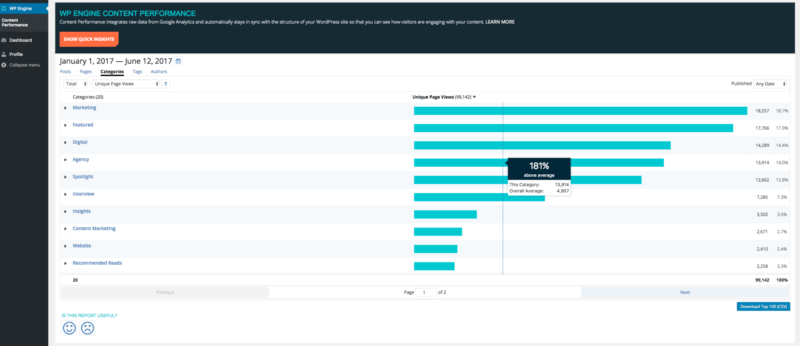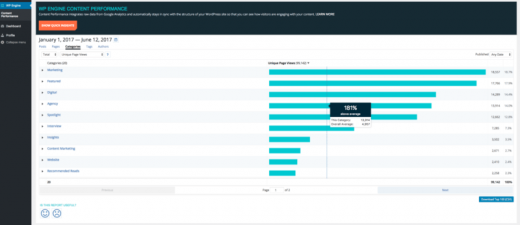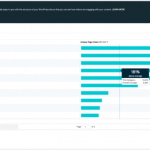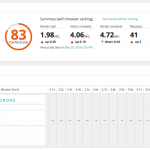WP Engine launches Content Performance analytics tool
Incorporating some Google Analytics data, the new capability is designed to better measure content by authors, posts and topics.

WordPress digital experience platform WP Engine is out this week with a new analytics product that marries data from Google Analytics with its own info on site performance.
Called Content Performance, it is designed to provide greater insights into how well content is doing. Unlike Google Analytics, it measures categories, authors, posts and tags, so that site managers can better determine such things as which posts drive the most traffic and engagement, which topics are most popular or which authors perform the best in terms of user time on page.
The unique data categories are compared against nine metrics pulled from Google Analytics, including unique visitors, time on site, new users and bounce rate. Additional metrics for Content Performance include the average number of unique page views per post. Here’s a sample screen:

The Content Performance data is integrated into the WP Engine admin dashboard for WP Engine’s Business, Premium and Enterprise customers. Other customers still see the regular WP Engine dashboard, which presents its data separate from Google Analytics.
VP of Global Communications Eric Jones told me that Content Performance is the latest in a series of performance intelligence products from his company which includes the Page Performance tool launched last year.
Jones noted that Google Analytics provides such additional features as conversion data, which Content Performance — as a content-focused tool — does not. He added that the new analytics provides useful content data views for WP Engine’s small to medium-sized businesses, for which a more elaborate tool like Adobe Analytics would be too complex.
The Austin, Texas-based WP Engine — which has been expanding its partnership with Google in payments, infrastructure and analytics — says that its customer base of WordPress customers has now reached 65,000 in more than 140 countries. An estimated 28 percent of all websites employ WordPress.
Marketing Land – Internet Marketing News, Strategies & Tips
(36)














